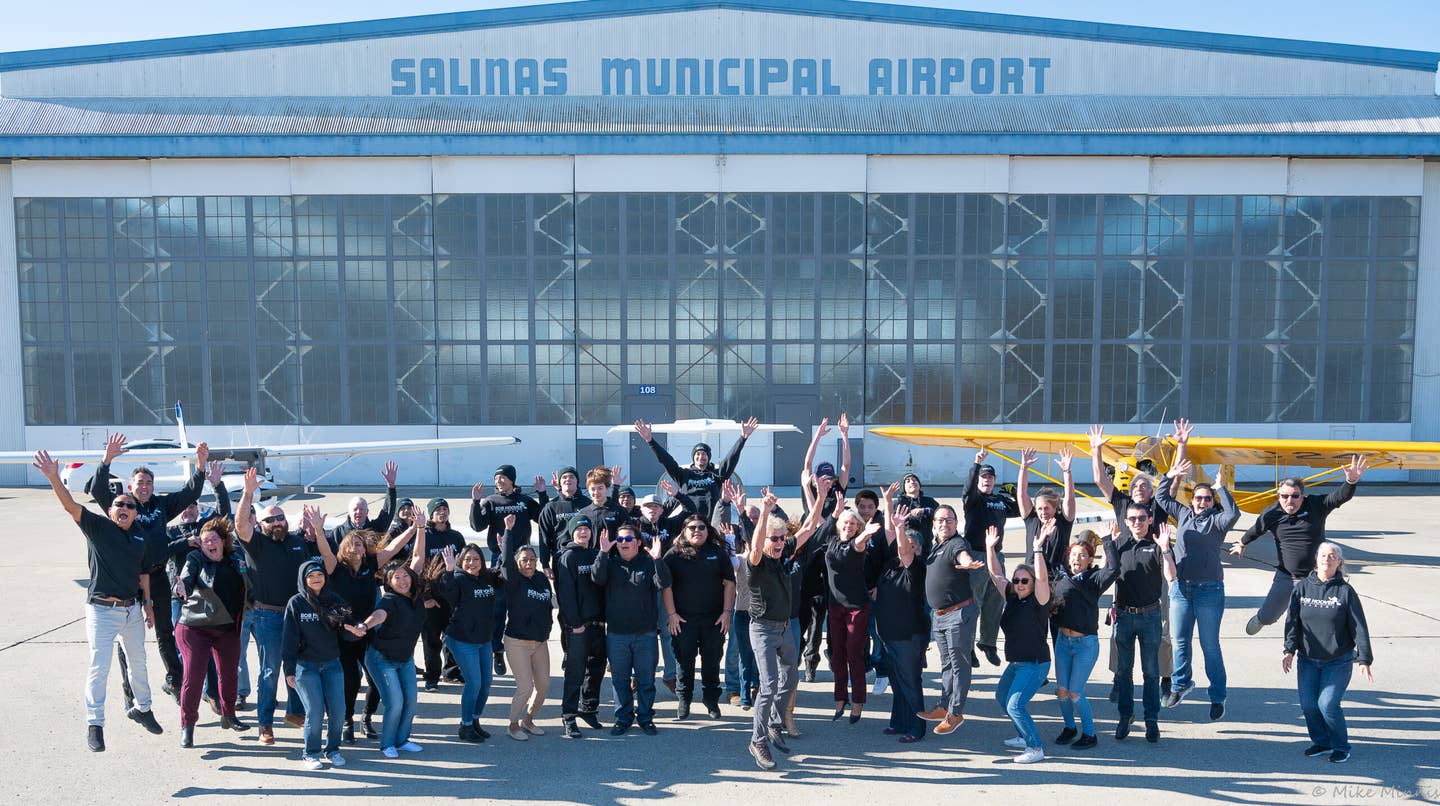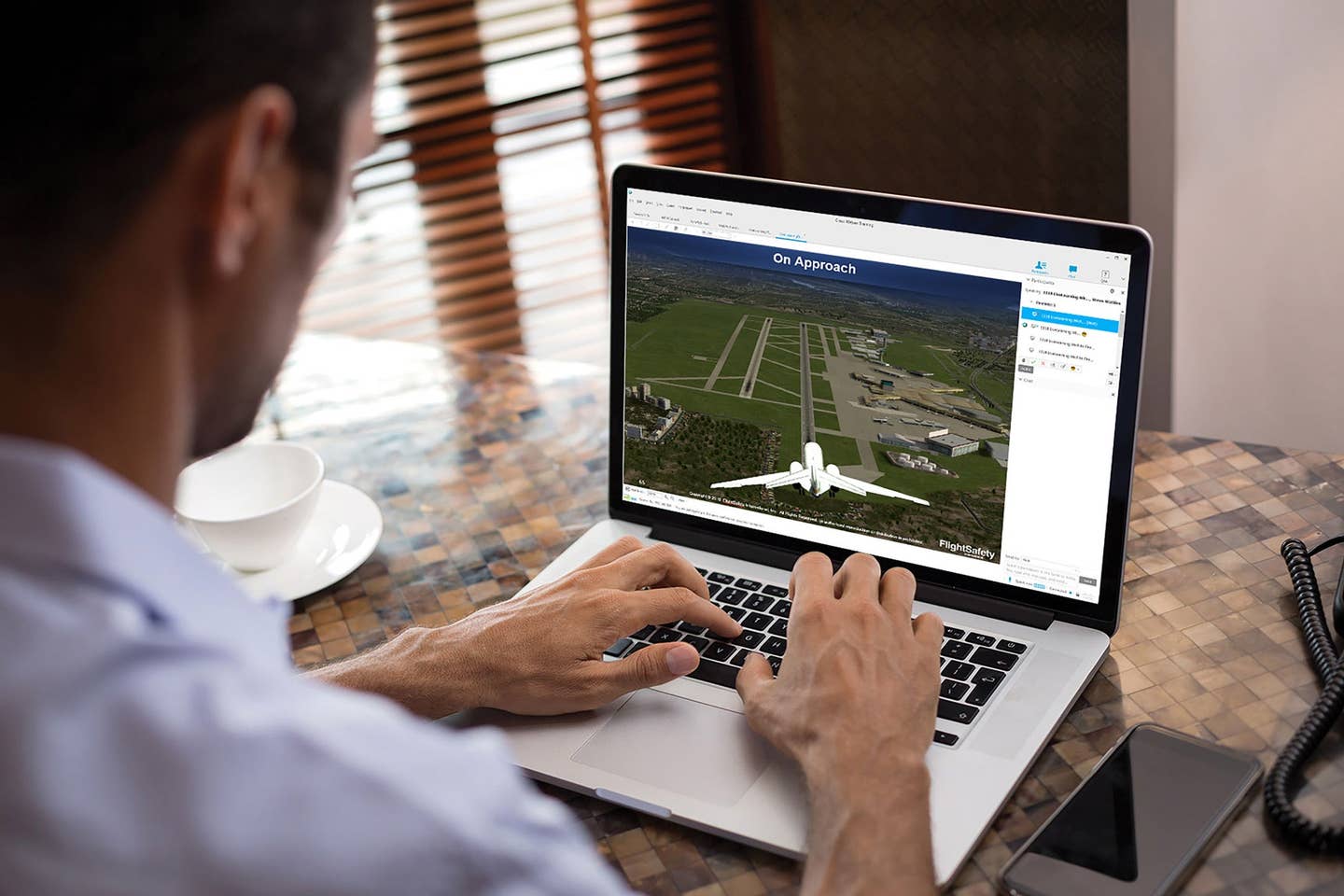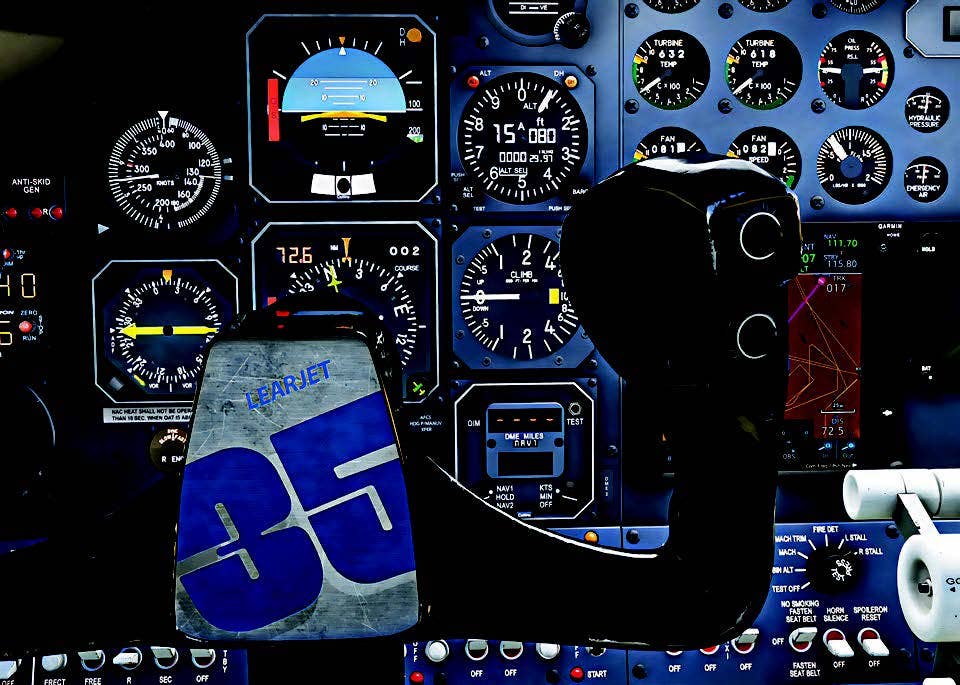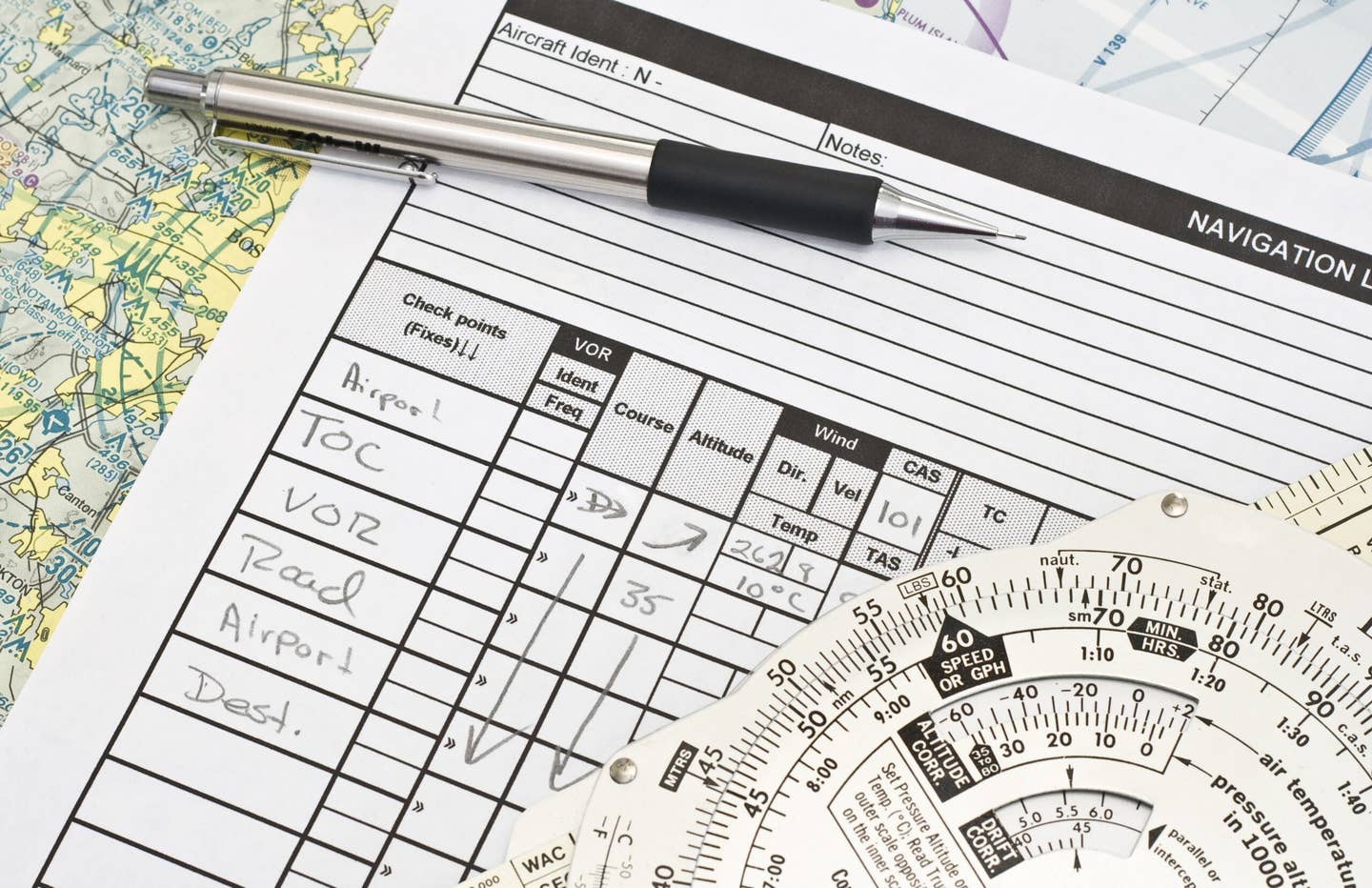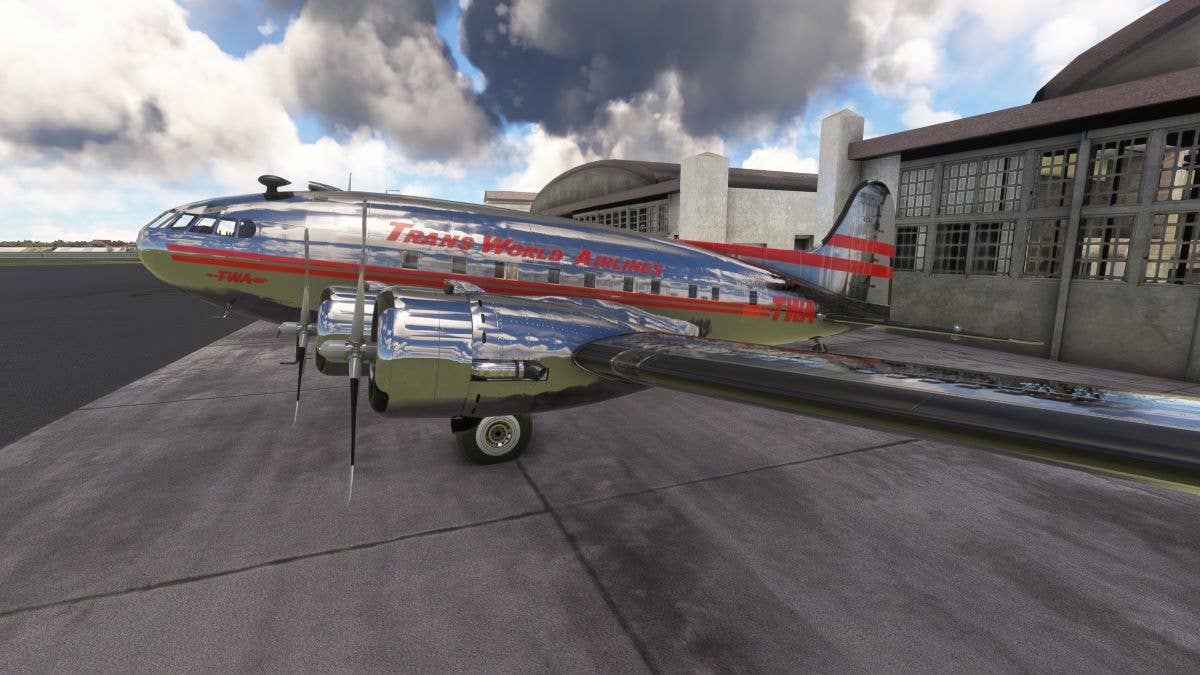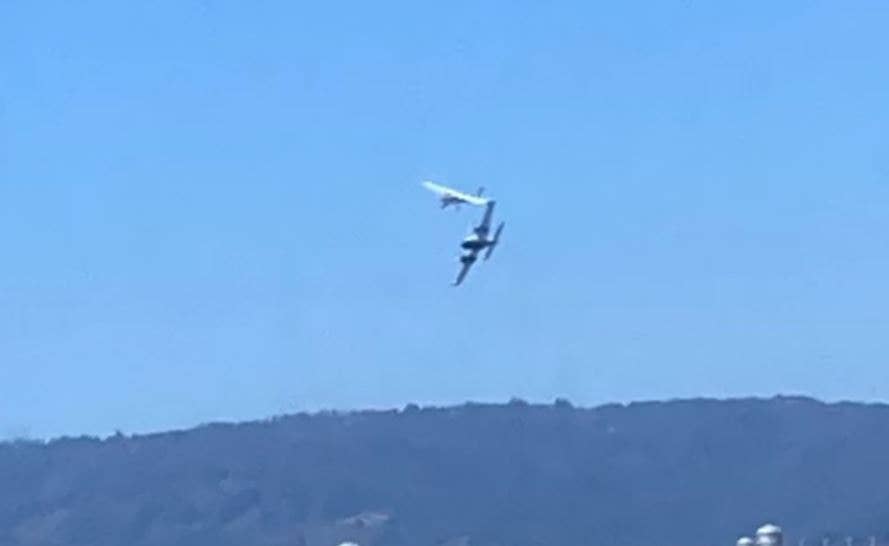
FlightSafety’s advanced, hands-on aircraft maintenance training programs expose technicians to practical instruction. [Photo: Flight Safety International]
FlightSafety International trains aviation professionals to stay sharp, fine tune, and always be ready for whatever happens in aviation. That’s true for the pilots in the air, as its training prepares them for anything, and helps master their aircraft.
That training acumen is not limited to operators flying the aircraft. FlightSafety has trained the best maintenance technicians in aviation, passing on decades of experience from its expert instructors. The experience gained in the classrooms and with hands-on instruction empowers technicians with confidence and composure needed for all situations, from the everyday to the unusual.
FlightSafety raises the bar on training because preparation mitigates risk and saves lives. A FlightSafety-trained maintenance technician is valued throughout aviation, benefiting the knowledge learned over years in the field. That training shows up in the work these technicians do every day, keeping aircraft airworthy and reducing downtime for operations.
Replicating Real-Life Service Issues
FlightSafety continually advances its training through innovation and expert instruction. It has relationships with major manufacturers, companies and OEMs built over decades.
You can see it with aircraft OEMs – where FlightSafety is working hand in hand with the manufacturers to craft curriculum and practical training. These advanced, hands-on aircraft maintenance training programs leverage the OEMs’ knowledge of aircraft design, manufacture and support with FlightSafety’s world-class training expertise. This collaboration results in greater standardization of maintenance practices in the field, as well as improved aircraft reliability.
Technicians are immersed in a learning environment specifically designed to replicate real-life service issues and events. Instruction is reinforced by walking through actual problems being experienced by operators.
Courses Built With Manufacturer Input
Along with aircraft manufacturers, FlightSafety works closely with Pratt & Whitney Canada and Honeywell Aerospace to develop the most effective possible training, based on real-world experience and mechanical expertise.
FlightSafety’s industry-leading training covers the full range of P&WC engines, including turboprop, turbofan and turboshaft – and P&WC APU/APS.
Operators of Honeywell Aerospace products learn up-to-date techniques and procedures to work on Honeywell engines, APUs, avionics, environmental controls and satcom systems.
By working closely with Pratt & Whitney Canada and Honeywell, FlightSafety offers better ways to reinforce classroom knowledge and expand troubleshooting capabilities. Technicians learn on full-scale systems trainers, maintenance task simulators, test equipment, major component cutaways and working models to master their skills.
Specific Needs of Students
FlightSafety instructors have always incorporated a mix of classroom and hands-on instruction, to give technicians a complete range of information necessary to develop, expand or refine proficiency. Interactive applied training reinforces the lessons learned and gives students an opportunity to hone their skills.
By working directly with the manufacturers, FlightSafety is able to provide courses and practical models that exactly show what is needed for skill mastery. Its courses and courseware are changed as components change on an aircraft and with advances in the field. Students know they’re working with up-to-date equipment that they’ll find in the hangar. FlightSafety tailors courseware and curriculum to exceed the specific goals and needs of the students or flight departments.
FlightSafety is continually updating courses to meet the demands of technicians and aviation professionals. As aircraft systems and avionics technology advances, FlightSafety has advanced with them, developing new cutting-edge courses and interactive courseware. FlightSafety’s AERO IT course trains the technicians on aircraft networks as well as troubleshooting the system. The Avionics Standard Practices course is a hands-on wiring and connector installation and repair course that is designed to teach technicians the correct skills. Instructors prepare technicians to enhance their leadership skills and handle modern safety and security programs.
Advanced Technology Training
FlightSafety has been a leader in online training and general courses, even before the pandemic made it difficult for customers to travel. Now, with a growing list of robust libraries of instructor-led LiveLearning and self-paced eLearning courses, technicians have been able to also access to superior instruction from their computer.
The list of available maintenance courses has expanded in the past year, including maintenance initial, updates, avionics, advanced troubleshooting and OMP, general maintenance, cold weather operations, dangerous goods handling, engine condition trend monitoring, engine run and taxi, human factors, safety management systems, and engine-specific repair and maintenance. LiveLearning courses cover thorough instruction on maintaining aircraft and engine types, where technicians can work directly with instructors from their locations. Nearly all courses can now be delivered via LiveLearning.
Beginning with training for Pilatus aircraft, FlightSafety is launching Virtual Aircraft, an immersive 3D learning experience aimed to assist students and instructors in exploring the aircraft within the classroom as if they were out on the flight line.
With Virtual Aircraft, students are situated within a real-life contextual environment with the aircraft appropriately scaled in both size and depth. Their interactions with the aircraft’s various components are true to life and happening in real time. This immersive media leads to greater levels of knowledge retention and an increase in transferable skill, building confidence and competency in operation.
Maintenance technicians benefit from FlightSafety’s new Virtual Engine Trainers, real-time, interactive and animated models of Pratt & Whitney Canada engines. Virtual Engine Trainers allow instructors and students to view the engine and the many individual components in any position or system grouping and even conduct practical maintenance procedures such as part replacement. X-ray and move functionality further enables students to view dynamic cross-sections into nearly every engine part. Borescope inspection training is also available with typical wear and tear simulated throughout the engine, allowing students to practice damage assessment and engine dispatchability. Virtual Engine Training is a EASA-approved training method for up to 50 percent of practical engine training.
Promoting Career Development
FlightSafety Master Technician Training Program offers a five-step, type-specific career development path. This comprehensive training program complements the experience gained from day-to-day operations while increasing knowledge and refining skills. After successfully completing the courses, schedules and examinations, students join the elite group of Master Technicians, which publicly acknowledges superior performance and technical proficiency.
This innovative and unique program is designed to enable maintenance technicians to further enhance their contributions to the safety, reliability and operating efficiency of the aircraft or components they support and maintain. It focuses on six major areas of instruction: airframe, avionics, cabin systems, composites, engine-specific and management.
The Master Technician training program develops more advanced skills at every level, producing higher standards for the technician and flight operations, improving safety, lowering operational costs and increasing aircraft dispatch reliability.
Industry demand is high for the more than 5,000 Master Technicians who have been trained worldwide. Peers and employers recognize the asset they are to flight departments.
The industry knows the value of FlightSafety-trained professionals, whether it’s in the sky or on the ground. FlightSafety prepares them to meet any challenge and be ready for anything.

Subscribe to Our Newsletter
Get the latest FLYING stories delivered directly to your inbox

